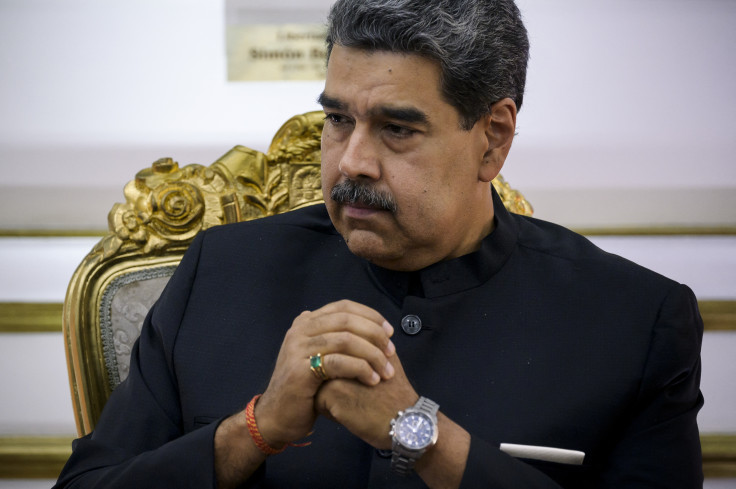
A Florida businessman with longstanding ties to Venezuela's oil industry reportedly helped arrange a recent high-level meeting between Venezuelan President Nicolás Maduro and special Trump envoy Richard Grenell, which resulted in an agreement allowing the U.S. to deport Venezuelan migrants while also securing a key license renewal for Chevron to continue oil operations in the South American country. The deal also included the release of six Americans detained in Venezuela.
The renewal of Chevron's license is significant as the company's operations contribute substantially to Venezuela's oil output, which remains a crucial revenue source for the Maduro government.
While the Trump administration has denied any direct quid pro quo, sources quoted by the Miami herald indicated that Maduro sought to leverage this concession to secure relief from U.S. sanctions, particularly those imposed on Venezuela's state oil company, PDVSA.
Sources familiar with the negotiations told the outlet that Harry Sargeant III, a Palm Beach-based energy entrepreneur and Republican donor, was a key figure in facilitating the talks. Sargeant, who has long sought to expand his energy dealings in Venezuela, has maintained a relationship with Maduro and senior officials of Venezuela's state-run oil company, Petróleos de Venezuela (PDVSA) for years.
Sargeant's connections to the Maduro regime, in fact, date back years. A 2019 piece from Reuters revealed that in November 2017 he traveled to Caracas to negotiate oil deals and was granted a rare meeting with Maduro himself. Speaking to to the Herald, Sargeant recounted how Maduro inquired why American companies were reluctant to invest in Venezuela: "there is no doubt they wanted to send a message that Venezuela was open to American business."
Sargeant's timing for the venture turned out to be ill-fated. As Reuters reports, just weeks after news broke of Sargeant's partnership with Petroleos de Venezuela SA (PDVSA), the U.S. government unleashed new sanctions banning Americans from working with Venezuela's state-run oil firm. It was part of a wider U.S. pressure campaign to topple Maduro's government.
The businessman, a former finance chairman of the Florida Republican Party, has faced legal and political controversies, including a $28.8 million lawsuit involving a Jordanian business partner and accusations of war profiteering related to oil transport contracts during the Iraq War.
Despite these developments, the White House has emphasized that Grenell's visit does not signify official U.S. recognition of Maduro's government. Meanwhile, Venezuelan state media characterized the meeting as a step toward improved bilateral relations, with Maduro himself calling it an opportunity for a "new beginning."
The agreement between Trump and the Maduro regime has sparked backlash among Venezuelans in the U.S. who fear deportation to a country still grappling with economic and political turmoil. Trump administration officials have stated that conditions in Venezuela have "notably improved," a claim widely disputed by human rights organizations and Florida politicians alike.
© 2025 Latin Times. All rights reserved. Do not reproduce without permission.






